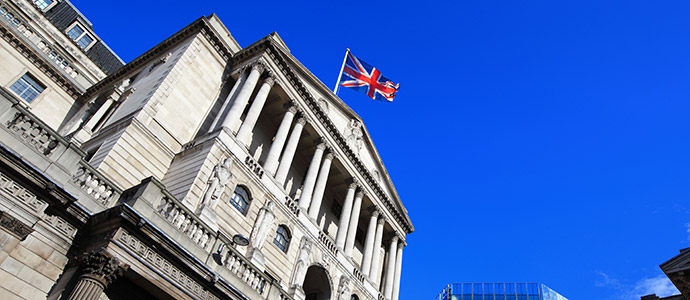Bank of England base rate hike – what are the implications?

The Bank of England has today hiked the base rate by 25 bps to 4.25%, following increases of 25 bps from the US Federal Reserve yesterday and 50 bps by the ECB last week. The major central banks are making clear their determination to bring unacceptably high inflation under control and signalling they will not be side-tracked by recent bank failures. This suggests policymakers feel confident the bank runs are specific to the institutions involved, and the great majority of banks are strong enough to withstand higher rates. Hopefully, this will help calm nerves in the global financial markets and the wider economy.
Yesterday’s unexpected rise in UK inflation from 10.1% in January to 10.4% in February, including core inflation increasing from 5.8% to 6.2%, effectively made a hike from Threadneedle Street a near certainty today. We do expect rates to go higher still – perhaps to 4.5% – due to the risk that inflation, by remaining high for such a long time, could spark a wage-price spiral. The Bank will be anxious to avoid that possibility, which could prove difficult and painful to reverse.
For real estate, a higher base rate and uncertainty in the banking sector means debt will remain harder to obtain and more expensive for the time being. However, it is the hit to sentiment – both for property and financial markets – that will be the main impediment to trading. Just a few weeks ago, many believed we were close to a turning point for the UK property market, where investors would be drawn off the side lines by lower prices. This fresh wave of uncertainty is now likely to encourage a ‘wait-and-see’ attitude in the short-term, moving back the timeline for the property market cycle. However, assuming stability returns to financial markets and interest rates peak before the summer, we remain confident a recovery for real estate investment is likely in the second half of this year.

